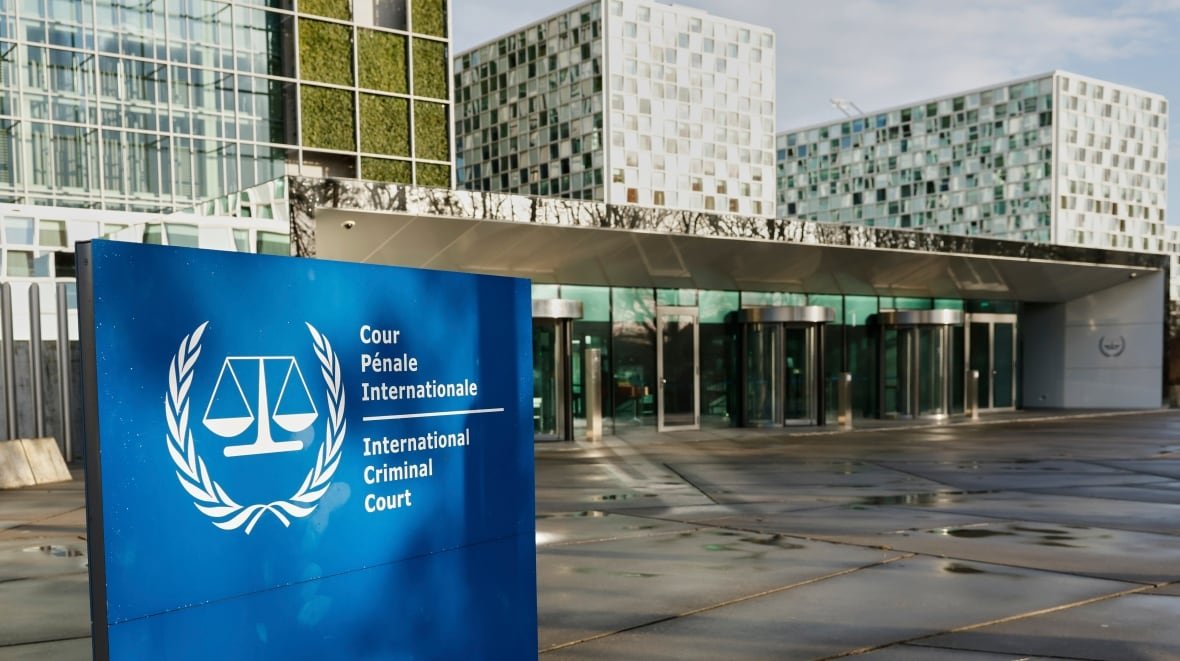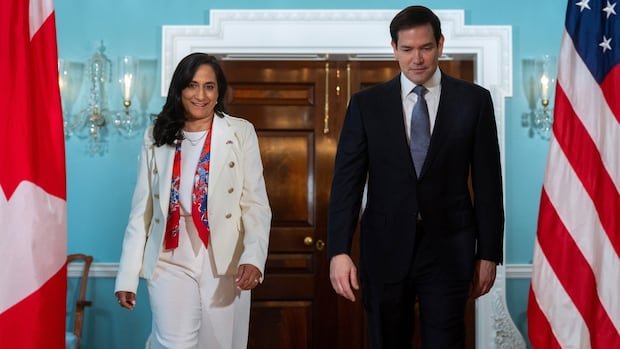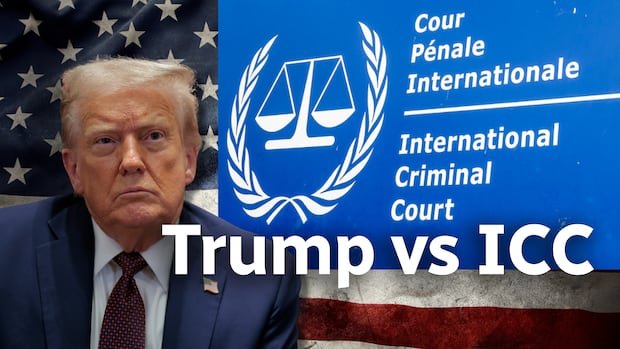Canada’s Foreign Affairs Minister Anita Anand said Tuesday that she’s spoken with a Canadian International Criminal Court judge who is facing U.S. sanctions — but made no mention of Washington’s actions.
The U.S. government sanctioned Judge Kimberly Prost and three other ICC judges it said had been instrumental in a past decision to investigate U.S. officials and in efforts to prosecute Israeli leaders.
The State Department said last month that Prost was sanctioned for ruling to authorize the ICC’s investigation into U.S. personnel in Afghanistan.
In her first public comments on the matter, Anand said she has the “utmost confidence” in Prost, but did not reference the sanctions.
Kimberly Prost, a Canadian judge on the International Criminal Court, has been slapped with sanctions by the Trump administration for ruling to authorize the ICC’s investigation into alleged war crimes and crimes against humanity by U.S. personnel in Afghanistan. The sanctions come as the U.S. State Department unleashes a new wave of restrictions against judges it said were instrumental in efforts to prosecute Americans and Israelis.
“Members of the judiciary, including those who serve in international courts, are entrusted to be objective and impartial in the dispensation of their duties,” Anand wrote.
“I thank Judge Prost, and all judges on the International Criminal Court, for their vital work in upholding the mission of this important judicial body.”
ICC jurists Nicolas Guillou, of France; Nazhat Shameem Khan, of Fiji; and Mame Mandiaye Niang, of Senegal, were also sanctioned, with the State Department linking the decision to the tribunal’s investigation into Israel’s actions in Gaza and the Israeli-occupied West Bank. The U.S. sanctioned four other ICC judges in June.
U.S. President Donald Trump has imposed sanctions against four International Criminal Court (ICC) judges. About That producer Anand Ram examines the complicated relationship between the U.S. and the ICC and explains why the Trump administration is now ramping up attacks against the international body.
Images provided by Getty Images, The Canadian Press and Reuters.
As a result of the sanctions, any assets they hold in U.S. jurisdictions are frozen.
Rubio called the court “a national security threat that has been an instrument for lawfare against the United States and our close ally Israel” and said the U.S. has remained steadfast in its opposition to the ICC’s “illegitimate judicial overreach.”
“I urge countries that still support the ICC, many of whose freedom was purchased at the price of great American sacrifices, to resist the claims of this bankrupt institution,” he said in August.
The ICC itself rejected Washington’s actions, calling the sanctions a “flagrant attack against the independence of an impartial judicial institution.”

Prost served on an ICC appeals chamber that, in March 2020, unanimously authorized the court’s prosecutor to investigate alleged war crimes and crimes against humanity committed in Afghanistan since 2003, including examining the role of U.S. service members.
ICC judges issued arrest warrants for Israeli Prime Minister Benjamin Netanyahu and former Israeli defence chief Yoav Gallant last November for alleged war crimes and crimes against humanity during the Gaza conflict. A warrant for the same alleged crimes was issued for Hamas official Mohammed Diab Ibrahim al-Masri, also known as Mohammed Deif, who is said by the Israeli military to have been killed in July 2024.
The ICC has jurisdiction over four main crimes: genocide, crimes against humanity, war crimes and crimes of aggression. It tries individuals accused of any one of these crimes, but not a state, government or political group.
The court currently has 124 member nations, including Canada. The U.S. and Israel are not signatories.


